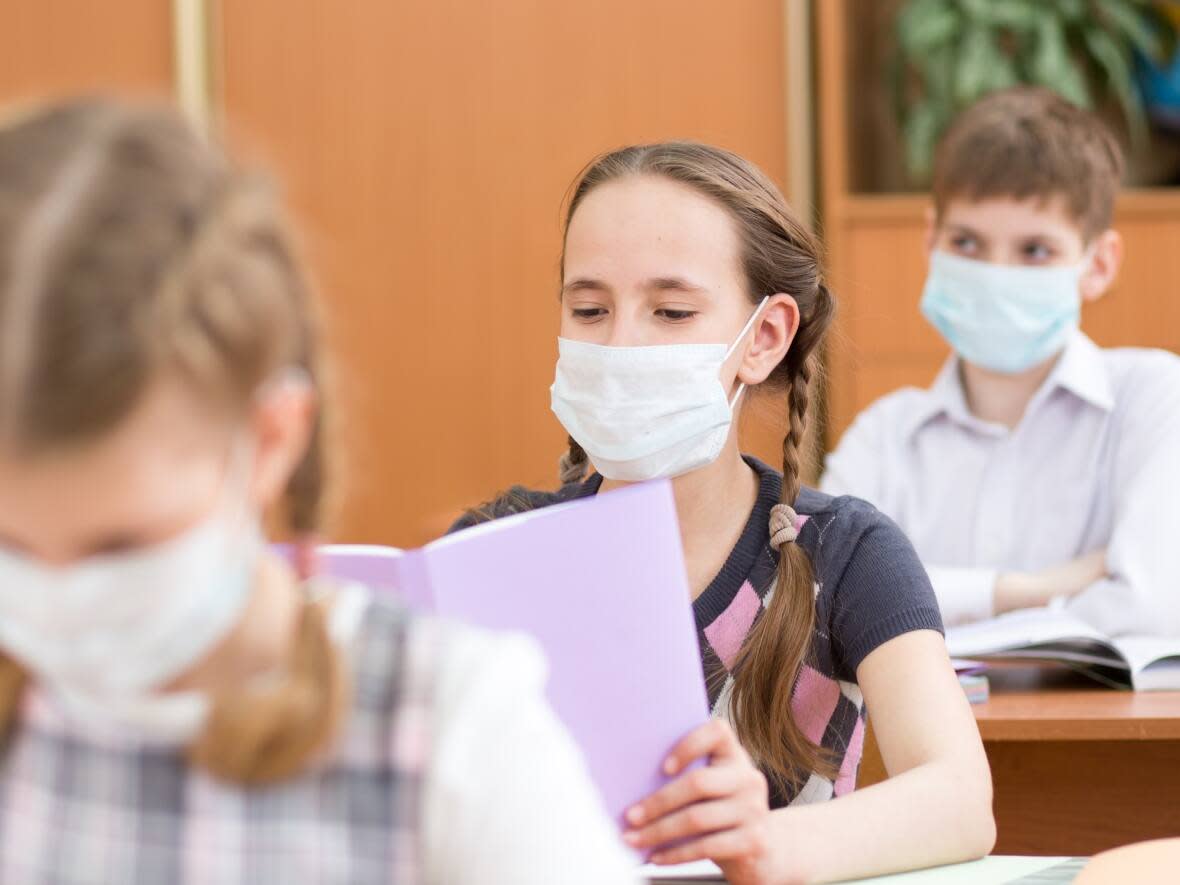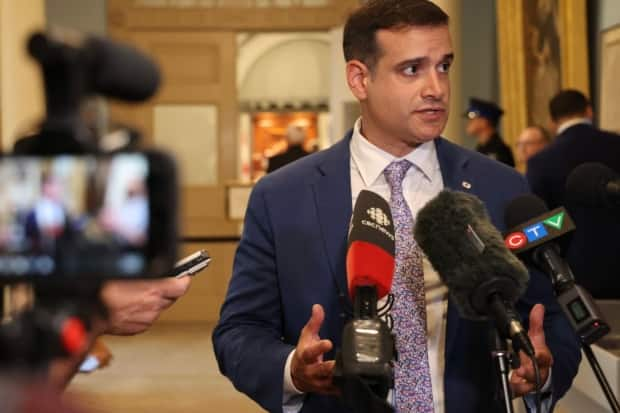Opposition MLAs want more information about Nova Scotia's back-to-school plan

Opposition politicians are calling on the Nova Scotia government to provide more information about the state of COVID-19 in the province and what it means for the return of school.
With about three weeks to go before students return to classrooms, it remains unclear what public health protocols, if any, will be mandatory for students and staff. The province removed a mandatory requirement for masks in schools last spring with about a month left in the school year.
In a statement on Tuesday, a spokesperson for the Education Department said the well-being of staff and students is a priority and public health experts would be consulted in planning, but provided no further details. Some universities in the province will require face masks in class this fall.
"As we have since the beginning of the pandemic, we are ready to respond as necessary to the challenges of COVID," said the statement. "We will be sharing back-to-school messages with staff, students and families prior to the start of the year."

NDP education critic Suzy Hansen said the time to share that information is now.
"I would like it if this government had a plan and they reassured parents that, you know, safety is No. 1, is paramount for our kids' learning," she said in an interview.
Hansen said she would like the public to receive more frequent information about the state of COVID in the province, including a return to regular briefings.
When it comes to school, Hansen, who has immunocompromised children, said she thinks students should be wearing masks, particularly as the cold and flu season approaches, to protect themselves and others.
Making masks available for those who want them
Dr. Joanne Langley, a specialist in pediatric infectious diseases at the IWK Health Centre in Halifax, said it's wise to continue with pandemic safety measures.
"I would recommend to families that they be vaccinated — that's the best form of protection — and using those measures to prevent getting the disease in the first place, which includes masks and avoiding contact with people who are sick," she said in an interview.
Langley said that if masks are not mandatory in schools, they should still be encouraged for students and staff that want them.
"I think we could get more information pushed out to the public about the importance of this, but ultimately Public Health has to decide what they think is important and what is less important among competing priorities."

A spokesperson for the IWK said patient numbers at the hospital's emergency department have dropped to "normal summer volumes," while the pediatric unit remains busy.
Liberal Leader Zach Churchill accused the government of having an "out of mind, out of sight" policy with regards to COVID since it reduced the frequency with which it releases public data and briefings with public health officials have ended.
"I think people, first and foremost, need to be informed about the state of the virus, the impact that it's having on our hospitals, and that way we can have a conversation about what restrictions are necessary," he said in an interview.
A lack of regular and timely information risks leaving people in the dark about the potential severity of the situation, he said.
'A lack of communication'
That's a view shared by an infectious disease expert at the University of Toronto who is working with other researchers to understand the state and severity of COVID-19 across Canada.
"It's a lack of communication of sort of the true seriousness of the situation that means that people don't really understand what's at stake," Tara Moriarty, co-founder of COVID-19 Resources Canada, said in an interview.
Data from Moriarty's group, which is compiled using information from Statistics Canada, the provinces, the Public Health Agency of Canada and other sources show Nova Scotia continues to experience a high rate of infection and hospitalization relative to the rest of the country, something Moriarty attributes to waves hitting the province later and coinciding with the removal of public health restrictions.
Moriarty said the situation creates further burdens for a hospital system and health-care workforce stretched to the max. It's impossible to know how or when the current rate of infection will run its course and so Moriarty said harm reduction becomes a critical part of public health approaches.
"You won't be able to eliminate all of the infections, but I don't think that getting 100 per cent of people infected is necessarily going to fix things, either," she said in an interview.
"So I think that anything you can do to limit infections that is cost effective and not difficult for people … is a good thing to maintain."

Moriarty points to mandatory masking in crowded indoor spaces as one tool to help with that effort. While it won't completely eliminate the problem, it does reduce the number of people infected or reinfected and the burden on the health-care system.
Premier Tim Houston and public health officials have said the need for mandatory protocols has passed and that members of the public have the information they need to make informed decisions about their safety.
The province's monthly COVID report, released this week, shows hospitalizations were up in July compared to June, although deaths were down.
MORE TOP STORIES


